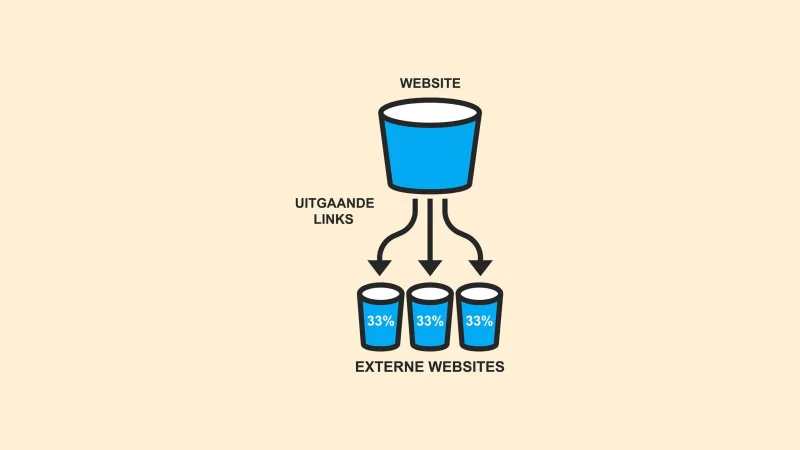Outgoing links

Outbound links on your website are crucial. For your visitors, but especially for the search engines. Outbound links should be well put together and most importantly: actually point to another website. In this article, we will discuss the importance of outbound links and how to verify that this is in good order on your website.
What are outbound links?
Outbound links are links placed on your website to other websites. Often these links point, for example, to the sources from which the content was taken. It is also possible to link to a website where additional information on a topic can be found.
A distinction is made in SEO between internal and external (outbound) links. The main difference is that internal links stay within a Web site(1). External links point to other websites (i.e., not your website but from your website)(2).
Checking outgoing links
It is important to check your outbound links carefully. After all, it’s not just annoying to your visitor if the outbound link doesn’t work or links to the wrong topic. The importance of outbound links is also crucial for the search engines. This is because through outbound links, the Googlebot crawls (indexes) your web pages. By indexing a Web page, Google “reads” your Web site, so to speak. Because Google understands your website better, you can rank higher in Google.
It is therefore important to check your outbound links carefully for relevance and whether they are still active (pointing to another website).
Measuring outbound links Google Analytics
In Google Analytics, under “Events,” you will now find all your outbound links(3). Here, the Event Action is the URL the visitor is going to and the Label of the URL of the page where the visitor clicked the outgoing click. This way you can quickly and easily measure outbound links.
Outbound links and SEO
But do outbound links (and their relevance and quality) impact a website’s SEO? A study from MOZ conducted in 2011 showed that external links have a positive impact on SEO. But how does this come about?
The thinking from Google is that this shows you have the visitor’s best interests at heart. Instead of leaving a visitor only on your own website, offer them more. You show Google that the priority of your website is to inform the visitor.
Google, as you may know, is a search engine. Indeed, it is a search engine that prioritizes its user. So not content creators or website creators. If you as a website owner show Google that you are making “sacrifices” to better inform the visitor, you may be rewarded for doing so.
My advice on the outgoing link
So what kind of links should you post? And to which websites? Placing the right outbound links should be done thoughtfully. This way you can get the most out of this.
1. The link should point to a relevant and strong website within the industry. This ensures Google that you are linking to information that is of good origin.
2. The website you want to point to must itself have good SEO.
3. Try not to link too often to websites that are not relevant to the visitor and what they are looking for.
Try to adhere to the above best practices to keep the most out of your outbound links. Don’t avoid using outbound links.






